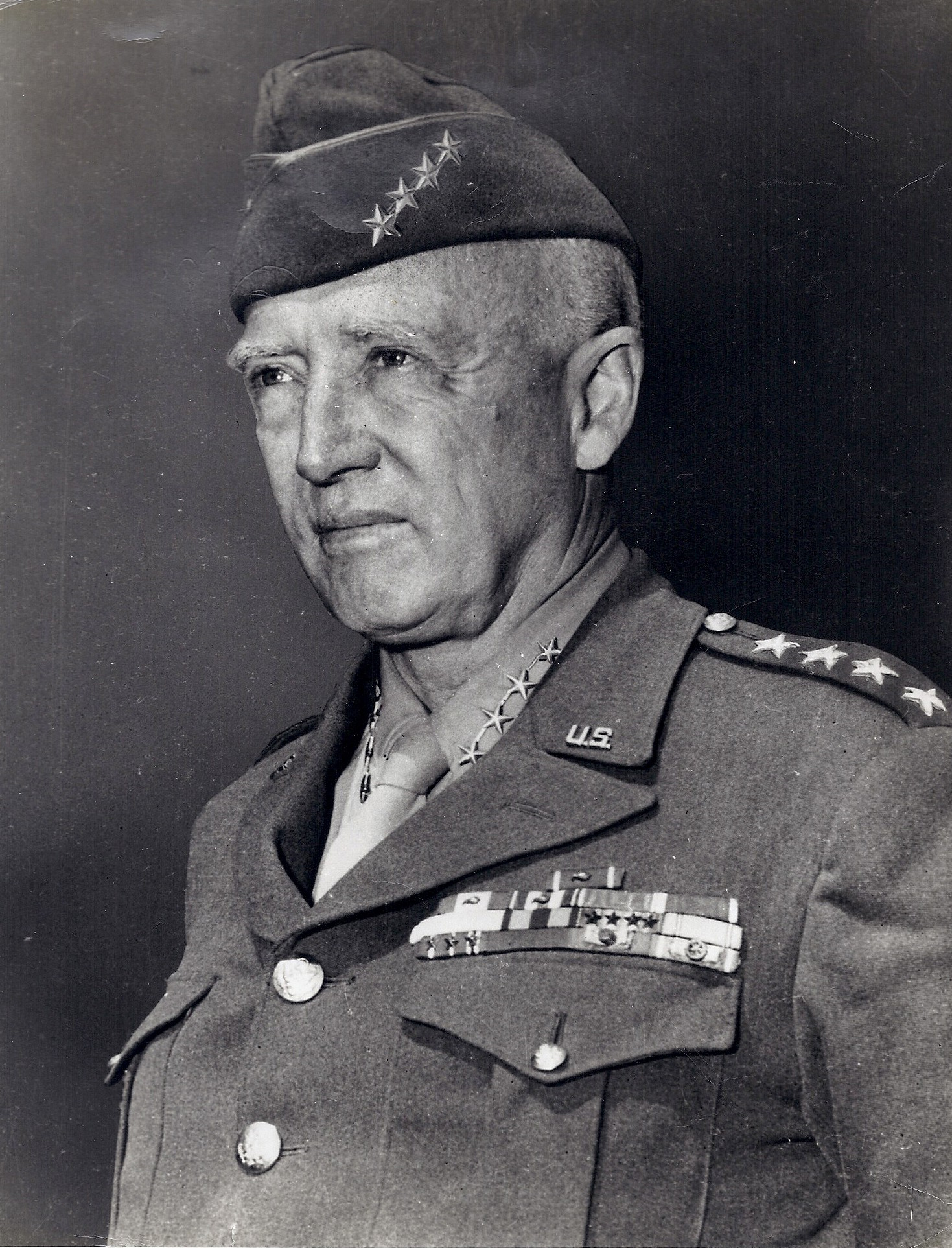George Smith Patton Jr. was a General of the United States Army who commanded the U.S. Seventh Army in the Mediterranean theater of World War II, and the U.S. Third Army in France and Germany following the Allied invasion of Normandy in June 1944.
Born in 1885 to a family with an extensive military background that spanned both the United States and Confederate States armies, Patton attended the Virginia Military Institute and the U.S. Military Academy at West Point. He studied fencing and designed the M1913 Cavalry Saber, more commonly known as the "Patton Sword", and was sufficiently skilled in the sport of modern pentathlon to compete in the 1912 Summer Olympics in Stockholm, Sweden.
Patton first saw combat during the Pancho Villa Expedition in 1916, taking part in America's first military action using motor vehicles. As part of the newly formed United States Tank Corps of the American Expeditionary Forces he saw action in World War I, commanding the U.S. tank school in France before being wounded while leading tanks into combat near the end of the war. In the interwar period, Patton remained a central figure in the development of the Army's armored warfare doctrine, serving in numerous staff positions throughout the country. Rising through the ranks, he commanded the 2nd Armored Division at the time of the American entry into World War II.
Patton led U.S. troops into the Mediterranean theater with an invasion of Casablanca during Operation Torch in 1942, and soon established himself as an effective commander through his rapid rehabilitation of the demoralized U.S. II Corps. He commanded the U.S. Seventh Army during the Allied invasion of Sicily, where he was the first Allied commander to reach Messina. There he was embroiled in controversy after he slapped two shell-shocked soldiers under his command, and was temporarily removed from battlefield command. He then was assigned a key role in Operation Fortitude, the Allies' disinformation campaign for Operation Overlord. Following the invasion of Normandy in June 1944, Patton was given command of the Third Army, which conducted a highly successful rapid armored drive across France. Under his decisive leadership the Third Army took the lead in relieving beleaguered American troops at Bastogne during the Battle of the Bulge, after which his forces drove deep into Nazi Germany by the end of the war.
During the Allied occupation of Germany Patton was named military governor of Bavaria, but was relieved over his aggressive statements towards the Soviet Union and trivializing denazification. He commanded the United States Fifteenth Army for slightly more than two months. Severely injured in an auto accident, he died in Germany twelve days later, on December 21, 1945.
Patton's colorful image, hard-driving personality and success as a commander were at times overshadowed by his controversial public statements. His philosophy of leading from the front and ability to inspire troops with attention-getting, vulgarity-ridden speeches, such as a famous address to the Third Army, met with mixed receptions, favorably with his troops but much less so among a sharply divided Allied high command. His strong emphasis on rapid and aggressive offensive action proved effective, and he was regarded highly by his opponents in the German High Command. An award-winning biographical film released in 1970, Patton, helped solidify his image as an American folk hero.
✵
11. November 1885 – 21. December 1945
•
Other names
Georg S. Patton,
Джордж Смит Паттон
